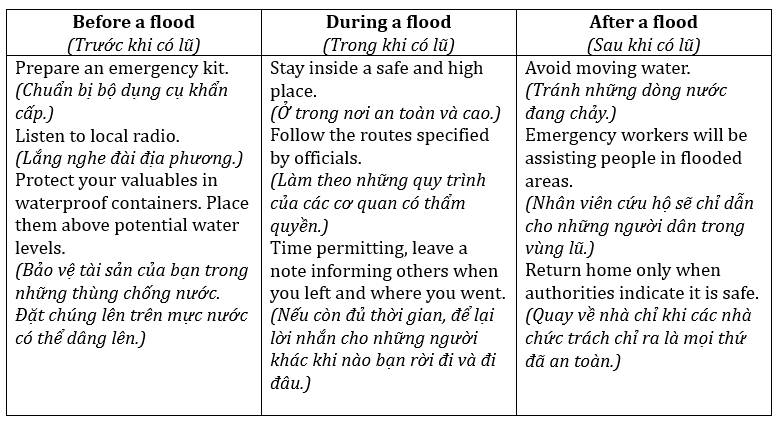Hãy nhập câu hỏi của bạn vào đây, nếu là tài khoản VIP, bạn sẽ được ưu tiên trả lời.

1:true
2:true
3:false
4: false
bài này lớp 5 cx làm đc
| Statements | True | False |
| 1. The writer has two close friends | x | |
| 2. They're in the same class | x | |
| 3. Mai s reading | x | |
| 4. Hanh s sport | x |

II. Choose the best answer A, B, C or D
1. D
2. C
3. A
4. A
5. B
6. A
7. D
8. A
III. Supply the corect tense or form of the verbs in parentheses
1. listenning
2. Have you ever ridden
3. go
4. seeing

Once upon a time, there (1) __was___a pretty young girl named Cinderella. She (2) lived with her mean stepmother and two jealous stepsisters. Poor Cinderella at and (5)__had___nothing to wear but old clothes.But no matter how mean her stepmother and stepsisters (6)__were___,Cinderella was alway cheerfuns. Even the animals (7)__loved___to be near her. One day a letter (8)__came___, inviting everyone to the King's palace for a ball.
Cinderella's stepmother (9)___said__, "Cinderella, you may go, but only if you finish your work."
Cinderella (10)___washed__, (11)__ironed___, and (12)__scrubed___ floor all day. Meanwhile, Cinderella's litter friends made her a lovely gown. When Cinderella's stepsisters (13)__saw___ the gown, they (14)__tore___it to pieces. "That's my ribbon !" cried one.
"And those are my beads ! " the orther shouted. Cinderella (15)___ran__ to the garden in tears. " Now I can't go to the ball" she cried.
" Don't cry, my child, " (16)__said___a gentle voice.
" I am your fairy godmother, and I have come to help you. "

A. Kay: Hi, Sally. (1) _____________Long time to see____________! What are you doing here?
Sally: Oh, hi, Kay. (2)_________Would you some more coffee or something else?_______________, I expect…..just shopping.
B. James: Do you mind if I sit here?
Lucy: No, (3) _____________________. (4) _____________________.
James: I’m James. (5) ____________Nice to meet you__________________.
Lucy: Hi, I’m Lucy.
C. Brian: Was everything all right with your meal?
Tracy: (6) ____________Not at all________________________.
Brian: (7) __________Same as you___________________________
Tracy: No, thanks. Just the bill. We must get back to work.
D. Peem: Look at the people in that rowing boat. I’m sure they are in trouble.
James: (8) ____You're right _______. _____Come on ________. Let’s go and get help.
E. Beggar: Can you spare any change, sir? For the homeless.
Charles: (9) _____________No , I'm sorry_________________.
Diana: Wait a minute. Here you are.
Beggar: Thanks. (10) ________Have a nice day____________________.
Có cái chỗ bỏ trống ý thì mình chịu còn mấy ý kia mình đã làm có thể là hợp lí rồi , còn sai thì thôi nha ! Bài khó :V
Work in pairs. Discuss what you should do before, during and after a flood. Write your ideas in the columns.
- Prepare an emergency kit.
- Check your insurance.
- Listen to local radio
- Stay inside a safe and high place.
- Follow the routes specified by officials.
- Time permitting, leave a note informing others when you left and where you went
- Avoid moving water.
- Emergency workers will be assisting people in flooded areas.
- Return home only when authorities indicate it is safe.
Tham khảo
